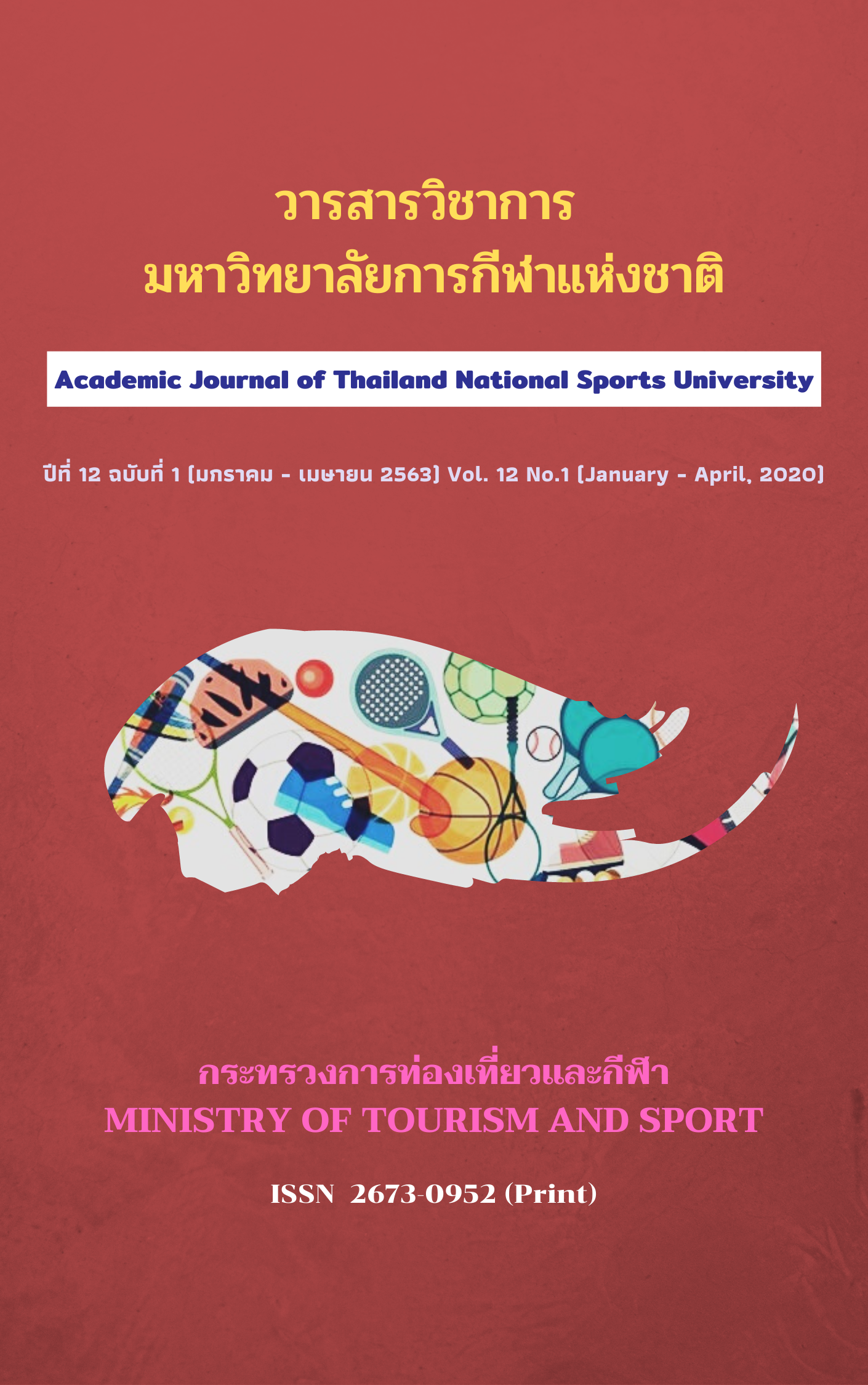TASK BASED INSTRUCTION ACTIVITY DEVELOPMENT IN HEALTH EDUCATION COURSE FOR GRADE 5 STUDENTS IN KASETSART UNIVERSITY LABORATORY SCHOOL MULTILINGUAL PROGRAM CENTER FOR EDUCATIONAL RESEARCH AND DEVELOPMENT
Main Article Content
Abstract
This research aimed to develop teaching activities, work skills and survey the students’ opinions on task-based learning in health education course at grade 5. This was a quasi-experimental research. The learning unit layout and 6 lesson plans were developed using task-based learning and applied to students in class 5/2 in the second semester of academic year 2015 which derived from simple random sampling. Research tools included: the lesson plan, evaluation form, skill assessment form and the survey on teaching activities. Qualitative data were analyzed by content analysis and quantitative data were analyzed by frequency, percentage, the average and standard deviation.
The results of this research were as follows: 1) The unit layout and 6 task-based learning lesson plans were created. The results from expert rating were judged with consistency index of more than 0.5. The lesson plans were updated on the appropriate time for activities and the appropriate content for activities. 2) Learning achievement was found high in quality and performance. 3) The learners found that task-based learning activities enhanced their work-group skills, and the ability to apply knowledge to work and to take care of their daily health.
Article Details
The published article is a copyright of the Academic Journal of Thailand National Sports University. The passage appeared in each article in this academic journal is a perspective of each author which is not related to the journal. Each author is required to be responsible for all components of his/her own article. If there are any mistakes, each author must be responsible for those mistakes on his/her own.
References
Koh, Y. H., Wong, M. L. & Lee, J. J. (2014). “Medical students' reflective writing about a task-based learning experience on public health communication.” Medical Teacher, 36(2), 121-129.
Ministry of Education. (2008). The Basic Education Curriculum 2008. Retrieved March 15, 2014, from http://www.psc.ac.th/docs/laws/education_core2551.pdf.
Munira, S. & Ferdousi, S. A. (2013). “A study of tblt approach: An experiment of sample lesson and preparing lesson plan for EFL Classroom.” UITS Journal, 1(2), 98-109.
Nesari, A. J. & Heidari, M. (2014). “The important role of lesson on education achievement of Iranian EFL teacher’ attitudes.” International Journal of Foreign Language Teaching & Research, 3(5), 25-31.
Nusara Darapong. (2011). The development of learning outcomes on geometric transformation of eighth grade students taught by task-based learning. (Master’s thesis). Silpakorn University, Faculty of Education, Nakhon Pathom.
Nunan, D. (2006). Task-Based Language Teaching. Cambridge University.
Rodriguez-Bonces, M. & Rodriguez-Bonces, J. (2010). “Task-based learning: Old approach, new style, a new lesson to learn.” Universidad Nacional de Colombia, 12(2), 165-178.
Suchat Somprayoon, & Aimutcha Watthanaburanon. (2010). Professional Health Instruction. Bangkok: Dokyawichakan Publishing Co., Ltd.
Willis, D. & Willis, J. (2007). Doing Task-Based Teaching: Oxford University.
Willis. J. (1996). A Framework for Task-Based Learning. London: Longman.
Zhou, Q., Huang, Q. & Tian, H. (2013). “Developing students' critical thinking skills by task-based learning in chemistry experiment teaching”. Creative Education, 4(12), 40-45.


